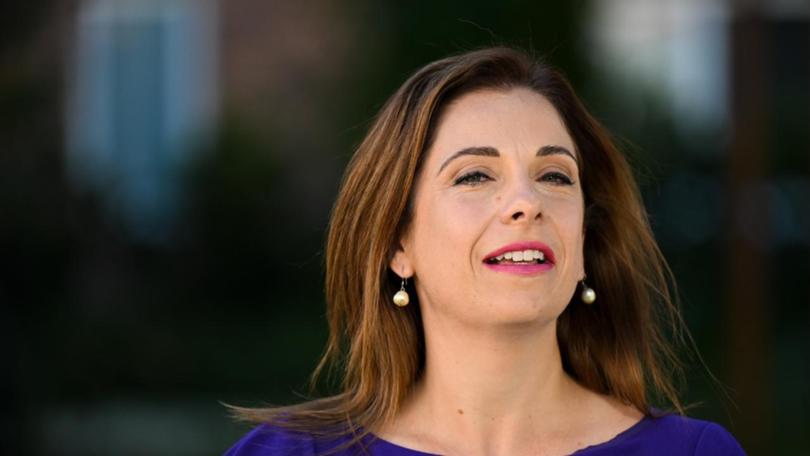MARK RILEY: Anika Wells is considering Anika Wells’s aged care reforms . . . and NOTHING will happen fast
Aged Care Minister Anika Wells has spent months considering a report from a task force chaired . . . by herself. Welcome to politics in Australia where absolutely nothing is ever 'urgent‘.

The chair of the Federal Government’s aged care task force has handed a wide-ranging report on critical reforms to the Federal Minister for Aged Care.
The chair of the task force is Anika Wells.
The minister is Anika Wells.
Sign up to The Nightly's newsletters.
Get the first look at the digital newspaper, curated daily stories and breaking headlines delivered to your inbox.
By continuing you agree to our Terms and Privacy Policy.It’s a fair assumption that the minister will agree with the chair’s recommendations.
That should mean that those 23 recommendations are accepted immediately.
Right?
Well, no.
The minister is now taking time to consider the task force’s report before deciding which of those suggestions to accept and how and when to implement them.
Yes, Anika Wells is considering Anika Wells’s recommendations.
This is how politics works in Australia. Or doesn’t.
It is three years since the aged care royal commission released its confronting report into the disgraceful state of Australia’s aged care industry.
It now appears that it will be several more years before many of the task force recommendations will be implemented, if at all.
In their voluminous final report, the royal commissioners were clear that immediate changes were required.
“Urgent reform of aged care is needed,” they said.
They couldn’t have put it more bluntly than that.
And if urgent reform wasn’t taken?
“Further delays while changes to institutional structures are rolled out would leave these urgent problems unaddressed for too long,” they said.
The word “urgent” appears 17 times in the commissioners’ report summary.
And when they say “urgent” they mean right away.
But members of the task force who aren’t Anika Wells suggested today that it could take several years to implement the reforms.
That isn’t good enough.
The government has instituted significant changes already, increasing aged care workers’ pay and enforcing tough regulations protecting residents against abuse. It should be congratulated for that. But the challenges are increasing exponentially.
A few of the changes will be unpopular.
They will cost wealthier aged residents a little more.
They are necessary changes — the royal commissioners would say essential — but they will take some political fortitude to implement.
Rolling the bulk of them out over the next year would be a reasonable timetable.
But doing that would mean the reform process would run headlong into the next Federal election, which I believe will be in May next year.
And it’s a fair bet that the Government doesn’t want to run the risk of facing an electoral backlash as it goes to the polls.
While some of the recommendations will be difficult to sell, the toughest of all has been rejected.
The royal commissioners had recommended a 1 per cent levy on all working Australians to pay for the improved services needed to elevate our aged care system towards the world’s best practice.
The task force has said no to that.
It resolved that a broad-based tax would introduce unfair intergenerational equity issues.

It would ask younger workers already doing it tough to pay additional taxes over the next 30 or 40 years for a service they may never use.
Instead, the task force has opted for a means tested, users-pays system.
That would ask wealthier residents to contribute more to the daily costs of food and services, such as cleaning and gardening — costs they have met all their lives before entering aged care plans.
It will only apply to new residents. Those already in care won’t be affected.
Taxpayers pay for 75 per cent of residential aged care and 95 per cent of home care and would continue to pay the bulk of both under the user-pays reforms.
But residents with larger assets would contribute more in a way that would make the system fairer and more sustainable.
Aged care providers are struggling. About half are losing money.
The Government has instituted significant changes already, increasing aged care workers’ pay and enforcing tough regulations protecting residents against abuse.
It should be congratulated for that.
But the challenges are increasing exponentially.
The aged care system will be swamped over the next 30 years as the number of Australians aged over 80 triples to more than 3.5 million.
Anika Wells has warned: “We must act now! The baby boomers are coming!”
Anika Wells is right.
And now Anika Wells the minister should listen to Anika Wells the taskforce chair and ensure these changes happen.
Urgently.

